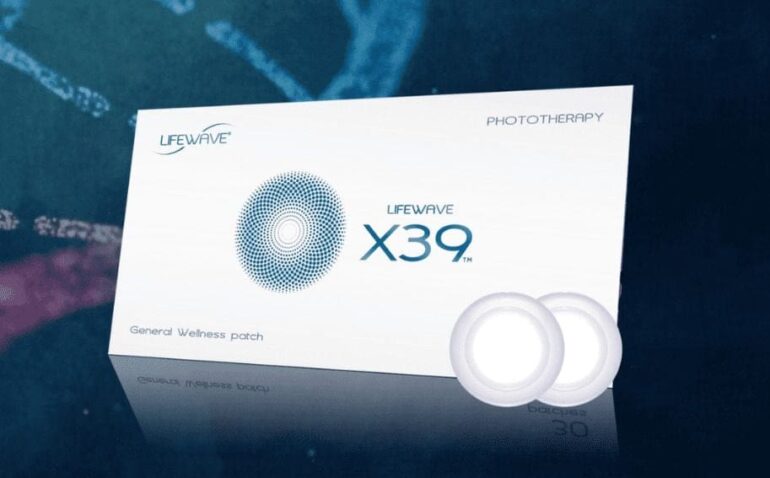🔴 Website 👉 https://u-s-news.com/
Telegram 👉 https://t.me/usnewscom_channel
After I heard about this study, I decided to stay up late for you night owls.
I know some of you are staying up late and struggling with sleep, so I decided to wait until it was late to write this and publish it.
This one’s for you, the night owls…that will hopefully not be night owls for much longer.
Did you stay up late on the weekend?
Did you feel groggy on Monday?
Have any alcohol or “nightcaps” ?
Turns out, these are having a big negative impact on your health.
But what if all you needed was a conch?
Or a certain fruit?
Healthline reports on the study:
Late nights and a few drinks might be disrupting your sleep more than you think.
A large international study led by researchers at Flinders University has found that symptoms of obstructive sleep apnea (OSA) — a common sleep disorder that may slow or stop breathing — may tend to worsen on weekends.
Researchers coined the term “social apnea” to describe the weekend increase in symptoms, which appear driven by lifestyle habits such as staying up late, sleeping in, and drinking alcohol. Adherence to OSA therapies like CPAP machines may also be less consistent on weekends.
The team analyzed data from over 70,000 people worldwide and found participants were 18% more likely to have moderate to severe OSA on weekends (Saturdays) than mid-week (Wednesdays).
Sleeping an extra 45 minutes or more on weekends increased the risk of worse sleep apnea by 47%.
Why ‘social apnea’ may worsen on weekends
Sleep specialist Lindsey Hanna said symptoms of “social apnea” could develop even in those who don’t have obstructive sleep apnea.
“We often call it ‘social jetlag,’” she told Healthline. “Your body clock thrives on predictability, and when you shift your schedule by several hours on the weekend, your sleep becomes lighter and more fragmented.”
“Even without OSA, people often notice Monday morning grogginess, cravings for sugary foods, and reduced focus. You don’t need a diagnosis of OSA to feel the impact because your circadian system always notices when routines are off,” Hanna continued.
Long-term effects of poor sleep
Long-term poor sleep — even if it’s only on weekends — can take a toll on physical and mental health.
“Even without diagnosed OSA (bear in mind it is massively under-diagnosed), irregular weekend routines can fragment sleep, reduce deep and REM stages, and leave you feeling less rested,” Darwall-Smith said.
“It can also disrupt hormone balance, including leptin and ghrelin. This can lead to increased appetite, food cravings, and gradual weight gain, which in turn can raise OSA risk.”
Late nights and increased alcohol consumption can also impact body weight and appetite hormones.
“Eating large, late meals can disrupt digestion overnight and, over time, contribute to weight gain,” Darwall-Smith explained.
“This is important because extra weight around the neck and upper airway increases OSA risk, while disrupted sleep alters hormones like leptin (which signals fullness) and ghrelin (which triggers hunger), making it harder to maintain a healthy weight.”
“Beyond the medical side, disrupted sleep also affects patience, communication, and emotional availability,” she explained.
Lifestyle changes to improve sleep quality
If you’re concerned you’re not getting enough quality sleep on the weekends, experts say it’s important to maintain a consistent wake-up time, even on weekends.
Here’s 3 options for you to help your sleep.
- The Conch, (if your sleep issue is caused by sleep apnea)
- The sleepy juice.
- Do what Noah does.
What’s the conch?
Remember the book/movie Lord of the Flies?
The story about the kids stranded on an island and they start to go nuts. Well, whoever wanted to talk during their campfire meetings had to hold the conch.
So that’s what you have to do.
Get a conch and blow in it for 15 minutes, like you’re ready to go hunt down a pig.
Do YOU suffer from sleep apnea? Well, there IS a cure pic.twitter.com/M0BFVfhuxY
— What A Time To Be Alive (@whatatimepod) August 18, 2025
The Guardian reports on conch testing:
Thirty people living with the disorder and aged between 19 and 65 were involved in the trial, led by researchers at the Eternal Heart Care Centre and Research Institute in Jaipur, India.
About half of the group were taught how to use the shell, while the others carried out deep breathing exercises. Both groups were encouraged to practise their techniques for at least 15 minutes, five days a week.
Six months later, the trial found that those who had practiced shankh blowing were 34% less sleepy during the day. They also had higher blood oxygen levels during the night, and four to five fewer OSA episodes an hour on average.
Doesn’t sound sustainable?
Ok.
Here’s option #2, brought to you by Arnold’s Pump Club:
If you want a nightcap to help you sleep, alcohol is not your best bet. While it might help you fall asleep sooner, it will also lead to more nighttime disruptions, worse heart rate variability, and lower sleep quality and recovery.
If you’re looking for a drink that helps you fall and stay asleep without the downsides, research suggests tart cherry juice could be a natural way to support better sleep.
Your sleep is affected by many behaviors. So checking in on your stress, daily movement, and how much you use technology at night are the first things to improve. If you’ve removed sleep disruptors, tart cherry juice could help because it’s packed with melatonin and can increase tryptophan, which can improve your natural production of melatonin and help you sleep.
In some studies, drinking tart cherry juice appears to help people fall asleep faster, stay asleep longer, and have a higher percentage of deep sleep.
If you’re going to juice your sleep protocol, the research suggests 30 ml of tart cherry juice concentrate or about 250 ml of regular tart cherry juice about one to two hours before sleep.
The idea of a “nightcap” might be one of the most misleading references ever. The term dates back to the 1800s as an alcoholic drink that helps you ease into sleep.
There’s just one problem: research suggests that as little as one drink can completely disrupt a good night of rest.
A recent study found that alcohol disrupted sleep time, sleep quality, the time spent in REM, and increased resting heart rate by nearly ten beats per minute. And for those thinking it might help you pass out, it also made it harder to fall asleep. Not surprisingly, mood, energy, and cognitive functioning also dropped the morning after.
Don’t want your neighbors hear you using the conch for 15 minutes?
Cherry juice not your thing?
And here’s Option #3
Noah recently told me that that this one trick improved his sleep and he loves it!
After hearing how so many were struggling with sleep, I knew I had to share this with you and couldn’t sleep on it. No pun intended…sort of.
So what’s the trick?
Silent Nights patches. And they’re a game changer!
Just stick it and forget it!
After I told him about the X39 patches, he got those. But he also tried their sleep patches. Combined, he loves how they’ve improved his sleep! (And Noah runs this site like he’s Trump, running around non-stop writing articles, and all his emails. I lost track of all the writing he does, so he needs to make sure he gets plenty of sleep to stay on his A game.)
I know when I don’t get enough sleep it mgith shwo as I starrt to slurr my writting and spell turribly.
But don’t take our word for it.
Here’s Dr. Linda Goggin giving her take on the best way to sleep:
Here’s the link to get the X39 patches she suggested.
And for the Aeon patches, here’s the link for that.
Those are the two that I personally wear too. The Aeon is amazing at lowering inflammation in the body and I love it!
Here’s the link for the Silent Nights patches.
And here’s a grateful mother, so glad that the Lord has led her to this.
No more waking up at 2am and trying to fall back asleep for 4 hours for her anymore.
I’m actually praying for the day when our food and environment is finally organic and toxin-free so we don’t even have to use these patches, except to reverse our aging.
And here’s some amazing comments!





This is a Guest Post from our friends over at WLTReport.






